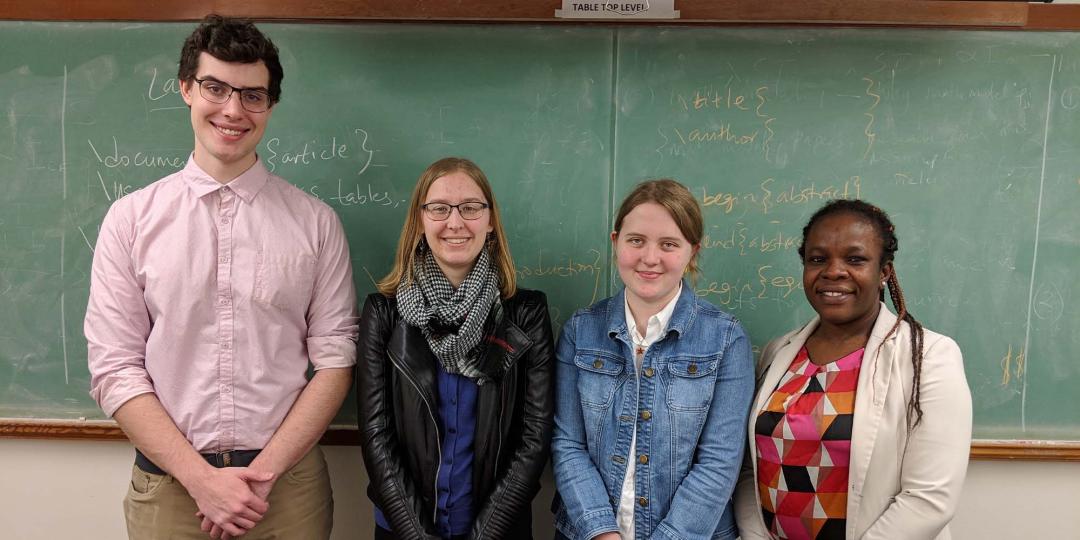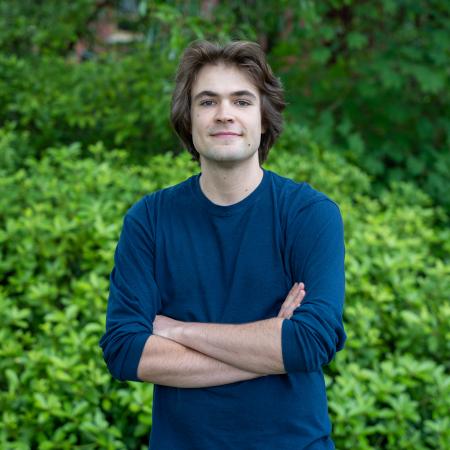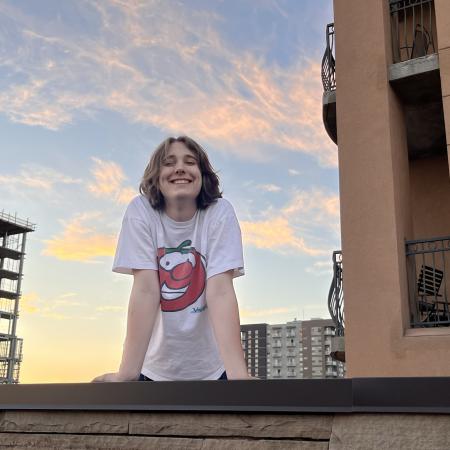The Office of Undergraduate Education through its URSA Engage program has funded seven undergraduate students to work with three mathematics faculty on mathematical research projects. URSA Engage is designed to establish mentoring relationships for undergraduates early in their academic programs at OSU. The goal is to provide first and second year students, or transfer students in their first year at OSU, opportunities to pursue research under the guidance of an OSU faculty member. Projects that integrate interdisciplinary work are particularly encouraged. Project summaries were drafted by faculty and posted on the URSA Engage website. Interested students were encouraged to meet with faculty to discuss details. While mentors can help students formulate ideas, the applications were written in the students’ own words. Students were assessed on their ability to articulate the professional and personal impacts of the project and their grasp of their role in the project and what needs to be accomplished.
Congratulations to Alan Schultz and Cooper Nicolaysen who will work with mathematics instructor, Dr. Hoewoon Kim; Darwin Nesheim, Abigail Bernasconi and Elizabeth Rayona Riutta who will work with Visiting Assistant Professor Blessing Emerenini; and to Nathanael Bowles and Anneli Brackbill who will both work with Professor Malgo Peszynska.
The students will meet weekly with the mentors for 15 weeks (mid-Winter 2019 to the end of Spring 2019). Each participant will be expected to present their results at the Celebrating Undergrad Excellence Symposium in May or the Summer Undergraduate Research Symposium in September. Students will also participate in a professional development workshop sponsored by the URSA Engage program.
The project supervised by Dr. Kim involves solving the linearized incompressible Navier-Stokes equations. The first component of the work is developing a mathematical and physical understanding of the motion of incompressible fluids (e.g., water) in the interior and exterior of a sphere through basic differential equations such as the diffusion equation and the Laplace equation. Secondly the stability problem deals with the following interesting question: “under what conditions can we show that a mathematical object which satisfies a certain property approximately must be close to another object which satisfies the property exactly?"
Alan Schultz is a freshman physics major. After graduation, he is thinking about either going to graduate school or joining the United States Air Force. Cooper Nicolaysen is a sophomore physics and math double major.
"I live by the idea that we must challenge ourselves and we must do that by taking on the most impossible tasks!" -Cooper Nicolaysen
Dr. Emerenini’s project is related to the mathematical modeling of super-spreading of infectious diseases, specifically relating to disease transmissions, persistence and extinction. The projects will involve significant efforts in modeling (creating equations), analysis (understanding properties of solutions) and simulations (solving numerically).



